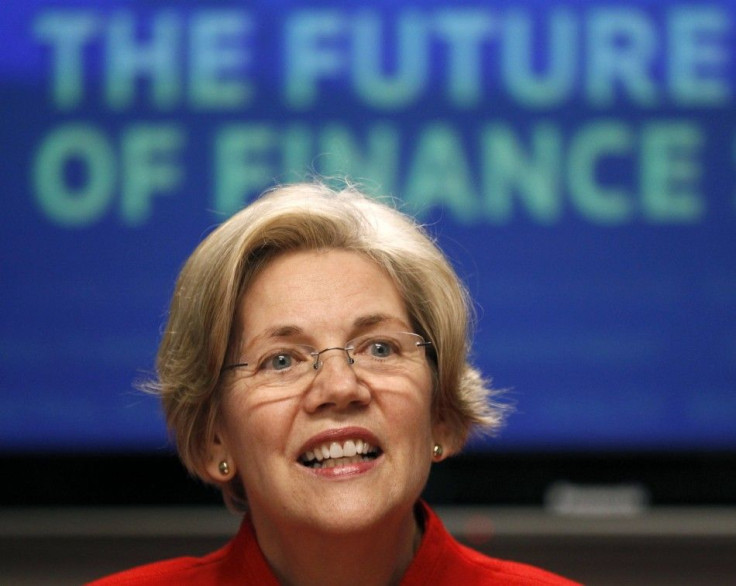Elizabeth Warren Fundraising Doubles Scott Brown

Massachusetts Senate candidate Elizabeth Warren raised more than twice as much between January and March as her opponent, incumbent Republican Scott Brown. The race is shaping up to be one of the most costly and closely scrutinized elections of 2012 in the U.S.
Warren's campaign announced that it had pulled in $6.9 million for the first quarter of 2012, easily outstripping Brown's $3.4 million haul for the same period.
The incredible enthusiasm we have seen from people across the Commonwealth who are contributing to this campaign shows the strong grassroots momentum behind Elizabeth's fight for middle class families, Warren campaign manager Mindy Myers said in a statement.
While Warren has yet to win the Democratic nomination, she vaulted to the top of the Democratic field from the moment she announced her campaign.
A progressive favorite who has championed greater protections for consumers and tighter financial regulation -- most recently as the architect of the Consumer Financial Protection Bureau -- Warren has Democrats dreaming of winning back the seat Brown won in a special election to replace liberal stalwart Ted Kennedy in 2010.
Polls show Warren and Brown to be effectively tied. Brown has sold himself to Massachusetts voters as a moderate Republican willing to find bipartisan compromise, emphasizing the times he has voted against the party line or worked with Democrats. Still, his campaign has sought to portrary Warren as an out-of-touch candidate favoring big government.
She believes government knows better than you how to spend your money when the truth is that Washington wastes the money we send them now, Jim Barnett, Brown's campaign manager, said in a statement.
Brown and Warren struck a compromise in late January to limit the kind of third party spending that has flooded the presidential race, but the substantial fundraising totals so far suggest that direct contributions could still make for one of the most expensive Senate races in history.
© Copyright IBTimes 2025. All rights reserved.





















